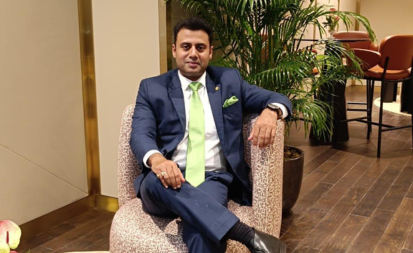How Digitization has changed the guest experience
Written by Mr Sanchit Gupta, Managing Director, Nest Jaipur India is one of the largest adopters of digital processes in the world. The digital penetration rates in different industries since 2016 have been close

Written by Mr Sanchit Gupta, Managing Director, Nest Jaipur

India is one of the largest adopters of digital processes in the world. The digital penetration rates in different industries since 2016 have been close to 50%. Even within the realms of specific sectors, which had seen little changes in the operational procedures in the past few decades, digitisation continues to impact different industrial aspects. This phenomenon also impacts the hotels and hospitality industry as properties have invested heavily in digital processes to integrate and simplify different services offered by hotels and restaurants. This is because of the rapid change in the external environment and the needs of the guests in the hotels.
Some aspects of the hospitality industry have been changed forever due to the adoption of digital technologies. Here are the five ways by which digitisation has changed guest experience in hotels:
Introduction of instant messaging for quicker services
In a post-pandemic world, there is hardly any space for slow or poor services provided to the guests as the margin for error has reduced considerably. This is why hotels are now using increasingly mobile experiences to improve the guest experience. There are personalised apps by which guests can plan their check-in and out times. It expedites the arrival and departure process and makes the entire procedure seamless. The guests are provided with an option to have a keyless entry as everything can be controlled through their mobile phones. In addition to all these features, if the guests face any service-related troubles, there is instant messaging through which issues can be resolved quickly.
Personalisation and chatbots-based customer support
In an era where personalisation is the key for all business marketing and sales activities, hotels have also not lagged in improving on this front. The guest experience is now tailored through chatbots and AI-powered assistants such as Alexa and Siri. This helps the hotel staff in responding to a large number of queries and resolving recurring and repetitive requests with ease. It means that the overall efficiency of operations improves with fewer customer complaints. All these factors directly result in better engagement and higher hotel profitability.
Eliminating communication and translation barriers
With the highest quality of translation and communication digital processes in place, the chances of hotels having trouble communicating with the guests in the language of their choice is largely eliminated. Chatbots and other new technology can overcome any language barriers and prevent miscommunication. This not only improves the overall customer experience but also ensures that the chances of communication gaps are reduced considerably.
Centralised Property Management through Cloud
A few technologies are not directly accessed by the guests but have an impact on the overall experience they face whilst staying in a hotel property. Centralised property management systems through the cloud might not be accessed by the guests directly. Still, it helps address some of the most recurring issues such as cleanliness, room service, and other additional services on offer. The cloud-based system also works on analytics so that the guests’ behavioural and preferences are recorded for predictive behaviour assessments. This sophisticated system helps in serving customers in a better manner. From reservations to duty assignment, every aspect of hotel management can be controlled from a central location, thereby improving the end-user experience.
Improved Internal Communications
Hotels would not be able to provide the highest quality of services to the guests unless there is a gap in the internal communication processes of the business. The staff should be well-informed about the availability of services and the guests’ individual requirements. Such internal communication systems help in better and coordinated operations of the hotel, and the teamwork of the staff is also improved. Guests now expect quicker service, which means operations carried out by hotel staff should be as streamlined as possible. With digitisation, it
is possible to push the boundaries of customer service through transparent internal communication systems.
Summing up
During the pandemic, the hospitality industry appeared to be one of the worst-hit sectors. However, the situation is rapidly improving, and one of the reasons for rebuilding the trust between the hotels and guests could be the rapid digitisation of operations. The overall guest experience is enhanced as the hotels are now more efficient and attain the goals of improved service and safe operations through the usage of the latest technologies as discussed in the article.
 English
English French
French German
German Italian
Italian



